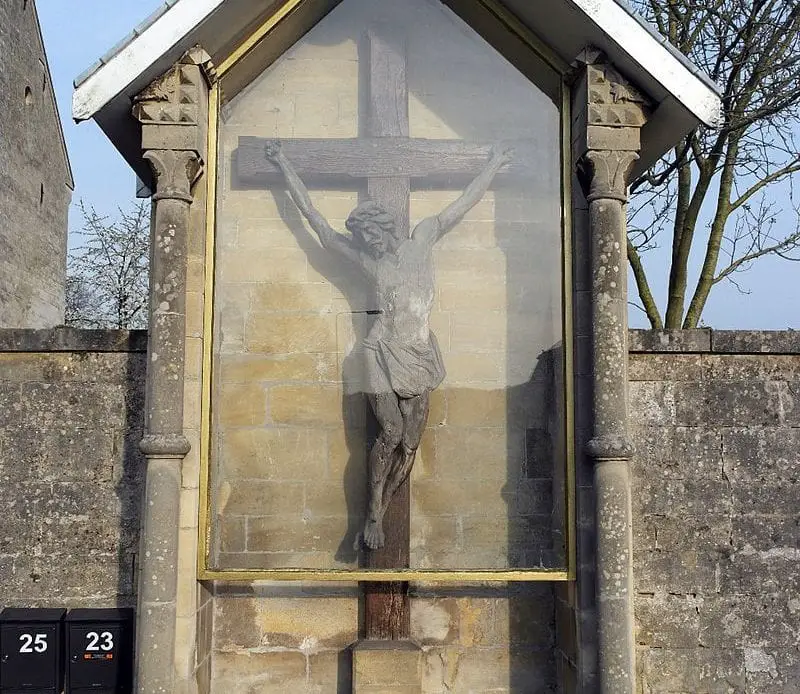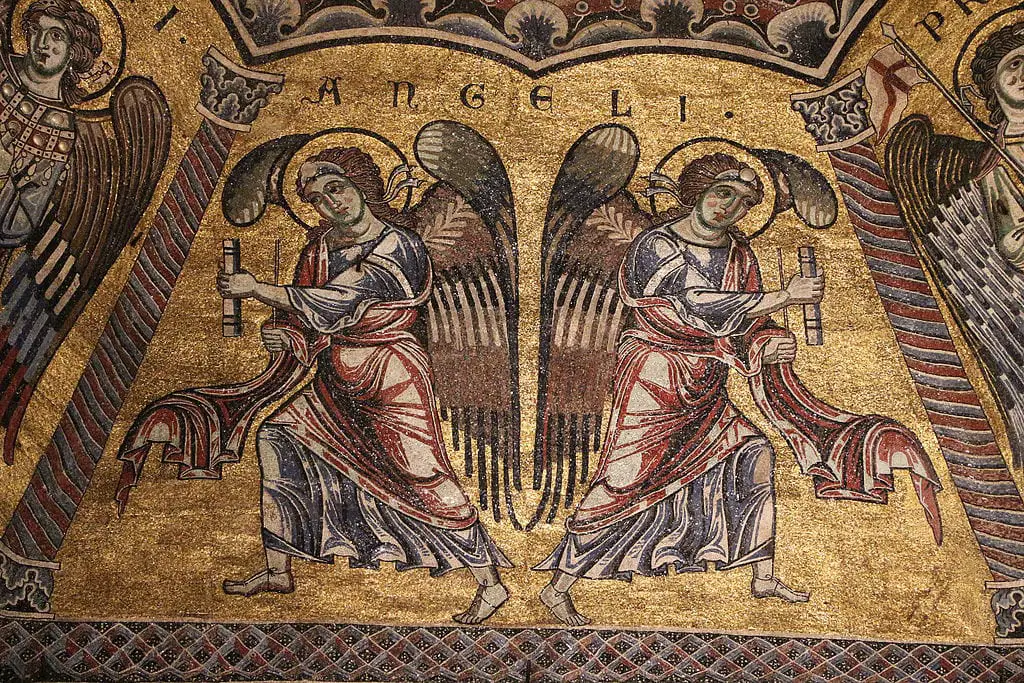
Death raises many queries in several believers of almost all faiths. Whether you’re a devout Hindu or a Christian, questions arise about death. When is it likely to occur? What will it be like? Where does the spirit after death go? These are some common and frequent questions that cross our minds. In the Christian faith, while a believer’s physical being goes into a grave for burial, the spirit (the soul) will travel to the Lord Jesus.
The body will remain with the Lord till resurrection, as Jesus was resurrected. Christians believe that this is the time when the deceased soul will attain eternal bliss when unified with Jesus Christ. Many are apprehensive, although they may be pious in their faith, doubting the spirit after death exists no more till the ultimate resurrection. Scripture tells us differently, and according to the Bible, this resting state is to do with the physical body, not the soul.
The Afterlife in Christianity – The General Opinion
Christians believe that what happens after death is dependent on the choices you make in your life. The followers of the faith don’t believe in reincarnation and second chances. Most Christians have the idea that belief in Jesus Christ as the Son of God will guide the spirit journey after death. Christians postulate that if you believe in your heart that Christ died on the cross to save humans from their sins, believers will reach Heaven to be with Christ forever. Again, the concept of the Resurrection comes into play here. If you believe in Jesus, He will resurrect you as well.
The following quote from the Holy Bible is evidence of this idea:
“For God so loved the world that he gave his one and only Son, that whoever believes in him shall not perish but have eternal life. For God did not send his Son into the world to condemn the world, but to save the world through him.” (John: 3:16-18)
Christianity Through the Ages
The Catholic Church, throughout the ages, has been in conflict with the stage after death, termed “intermediate”. This is the position of the deceased soul between the time of death and the time of unification with Christ. Christians have faith in resurrection, and a time when God reunites body and soul. Devout Christians know they will possess a glorified body, like Jesus Christ appeared from the tomb as the “firstborn from the dead”. Nonetheless, what happens in the interim? What happens to the spirit after death? The popular view has been that, at death, the soul travels towards God. A continuity exists. There is no interruption of life at the end of physical life. Humans continue to live within their own souls.
Different Views
Within the Catholic faith, there have been devotees who have called this interval after death the “sleep of the soul”. The perception of the soul is that it remains in a state of suspension after death. This way of looking at the soul’s condition is as if the soul were in an animated slumber. It will awaken at the time of its resurrection. Conclusions such as this, drawn from the euphemisms of the New Testament of the Holy Bible, are rampant. Here, the approach to death is described as people being asleep. Symbolically, the meaning of this is that people who have passed on enjoy the calmness and repose of leaving behind life’s struggles. In the hands of God, human spirits are finally at peace.
The Christian Sense of Continuity
In the teaching of Scripture, even if we consider the Old Testament, the arms of Abraham are the places where the afterlife resides. There is this persistent notion of continuity. As the apostle, Paul, put it, “To live in this world is good – the greatest thing is to be participating in the final resurrection. But the immediate state is even better.” This gives us a clue as to the important role of this “middle ground”. Another sign from the Bible comes from the words of Christ, when he spoke to the thief on the cross. Christ said, “I say to you, today you shall be with me in paradise.” Dives’ and Lazarus’ image in the New Testament (Luke 16:19-31) also implies a continuity of life and consciousness in an “in-between” state.
Belief in Christian Society

In olden days, many Christians believed in the continuity of life, and spiritually, this indicated a flow of the whole concept of the Christian church and its principles. Several early Christians baptized into the faith believed they wouldn’t die, thinking they’d experience the coming of Jesus Christ in their lifetimes. There was a common credence that Christians would venture into God’s kingdom directly, without the throes of death at all. Others were of the notion that the spirit after death would go through the atmosphere to meet Christ in the sky filled with clouds.
In the Nicene Creed, the Christian’s life represented as having “eternal” qualities is clear. In the Gospels and letters of the Apostles, “eternal” is a temporal aspect. Nonetheless, in its true sense, the word “eternal” should be translated, not as the soul’s immortality, but as it stands in relation to the resurrection. It is the resurrection that results in the “day of judgement”, the time when all souls are examined to be with God or cast into Hell. The decision from this can lead to the spirit being with God or facing punishment (Matthew 25:46).
The Concept of Eternal Life
In understanding the concept of eternal life in the context of the Christian faith, eternal life should be considered personal life. The essence of humankind created in the image of God is in accordance with this. Within this eternal life, there are distinctive aspects in talent, responsibility, duty and the length and breadth of life. Differences prevail in “wages” depending on occupation, sacrifice in suffering and trials and tribulations (1 Corintheans 3:8). In the same way, the resurrected souls are distinctive in eternal life in terms of their “glory”.
This is the expectation of many a Christian, and has had an influence on the Christian definition of marriage and friendship. The theme of continuity in marriage and friendship in the afterlife has led to a deeper perception of relationships in the Catholic faith. This can be seen in the influential teachings of the 18th century Swedish mystic and philosopher, Emanuel Swedenborg. He promoted a romantic theory about religion and a gave new meaning to marriage and friendship. This only served to enhance the Christian notion of the eternal value placed upon all relationships.
Still, Christian people were perplexed about the fate of the deceased in the period between death and the resurrection. A couple of views were postulated. First, the view of individual judgement states that it takes place immediately following death. The Christian individual is brought to an interim phase through which he/she enters a realm of perdition or of bliss. Nonetheless, this view doesn’t coincide with the Last Judgement as is documented in the Scriptures. As a result, another view prevailed. This was the notion that the spirit of the deceased enters a slumber state (sleeping). This continues till the Last Judgement occurs. The resurrection that takes place in between leads the soul to the Last Judgement, in which the soul is permitted to have eternal life with God or damnation.
Discrepancies
Critics, even those connected to the Christian faith, have issue with both views of the soul’s journey after death. They claim that the spirit after death, in contrast to Catholic tents, leaves no further chance to improve upon the faults while the individual lived. Christians argue that there should be some room to expunge guilt and atone for sins. The second view has received some critique as it states that the spirit is left in the intermediate period which is an indefinite time span. Later, it is rewarded for good and punished for sinning from a time that is previous to the soul’s sleep. This contradicts the purgatory state – a special stage of judgement immediately after death.

Contrasting views by different sects belonging to the overall Catholic Church share some views but disregard others. As a result, there are different views held by Christians who belong to distinctive sects. This poses somewhat of a conflict in people’s minds when they discuss different views of life after death, or rather, the spirit’s destiny after death. Suffice it to say that all views believe in the overall doctrine of good versus evil. This stating that good belongs with the Holy Father and evil (deeds in life) are banished into a place that has no salvation for the spirit. In the 21st century, the idea of the Last Judgement has become confusing to the modern Christian. At most, Christians of today are open to the idea of judgement of innocence and guilt of the individual, and consequently, of the spirit. The fundamental precept of all this is that a human being is linked with his or her spirit after death. So life connects to death. If we think of the “body of Christ”, all humanity is as one.

